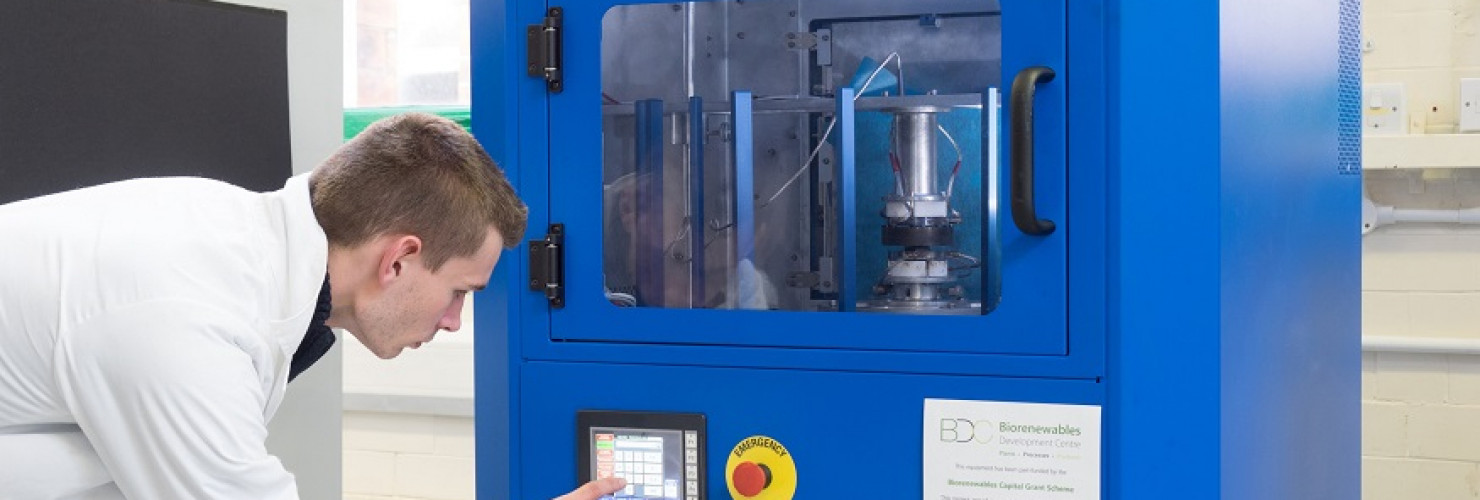
Revolutionising Nanofiber Filtration
A technical textile business using novel nanotechnology to develop high performance, recyclable textiles has benefited from capital funding from the Biorenewables Development Centre’s ERDF capital grants scheme.
Using nanofibre technology to filter specific antibodies from blood
The Nonwovens Innovation and Research Institute (NIRI), a high-tech university spinout specialising in product design and development in textiles, is developing varied applications for their novel technology. One such application is in filtration, e.g. for use as a blood filter to remove blood group specific antibodies, so producing a universal plasma suitable for all blood groups. This novel work is already attracting keen interest from market leaders in filtration and is just one of many exciting projects in their pipeline.
This is an industry that is keen to go green, says NIRI’s Matthew Tipper. They want to replace existing nanofibre technologies with materials that will be 100 per cent recyclable, and that is where our expertise in nonwoven processes and technologies is vital.
Traditional nanofibre technologies produce weak fibres with poor abrasion resistance, which makes them unsuitable for the rigours of many filtration applications. The technology used by NIRI is the only one of its kind in Europe and is able to overcome these problems. But it is small scale.
NIRI is a Leeds-based organisation that has a potentially market-leading technology, says Fabien Deswarte, BDC Business Development Unit Manager. But they needed funding support to shift the technology up a gear to allow them to move to the development stage of the process. We were able to help them in that ambition.
The ERDF grant allows us to make samples large enough to prove the feasibility of our prototype filter media. This, in turn, will enable us to develop new products, Matthew added. Our strategic objective is to develop new, high-value IP and deliver it to market under licence agreements. Leading filtration companies are showing commercial interest in the project and have identified it as a key objective for the industry going forward.
